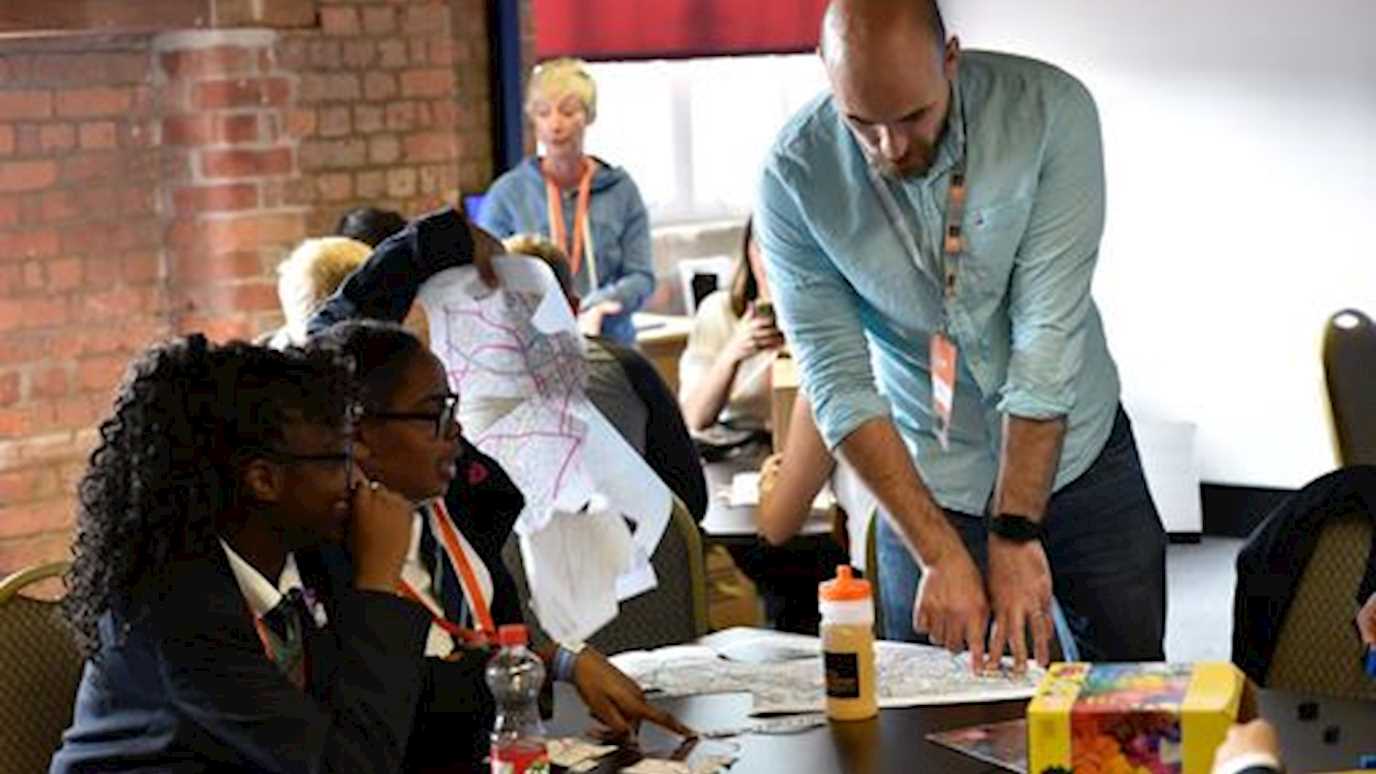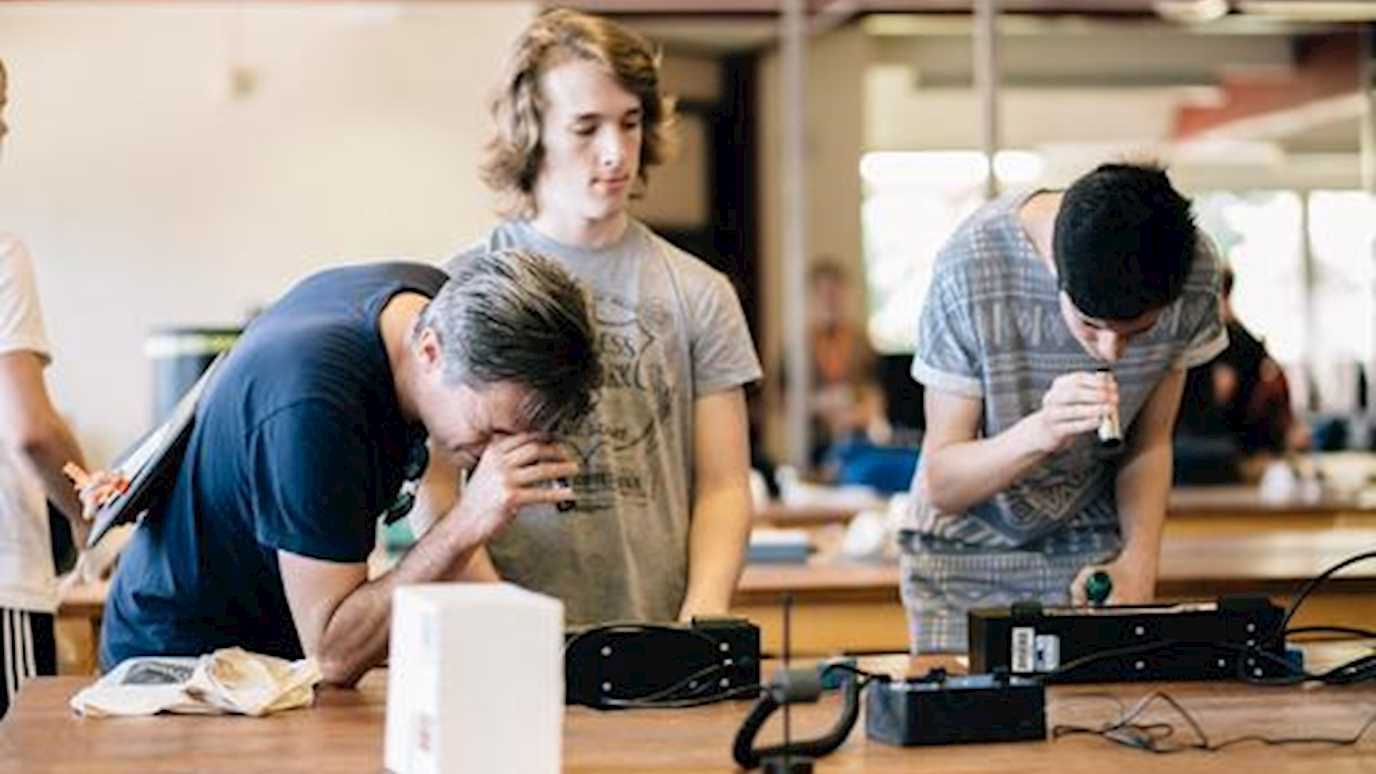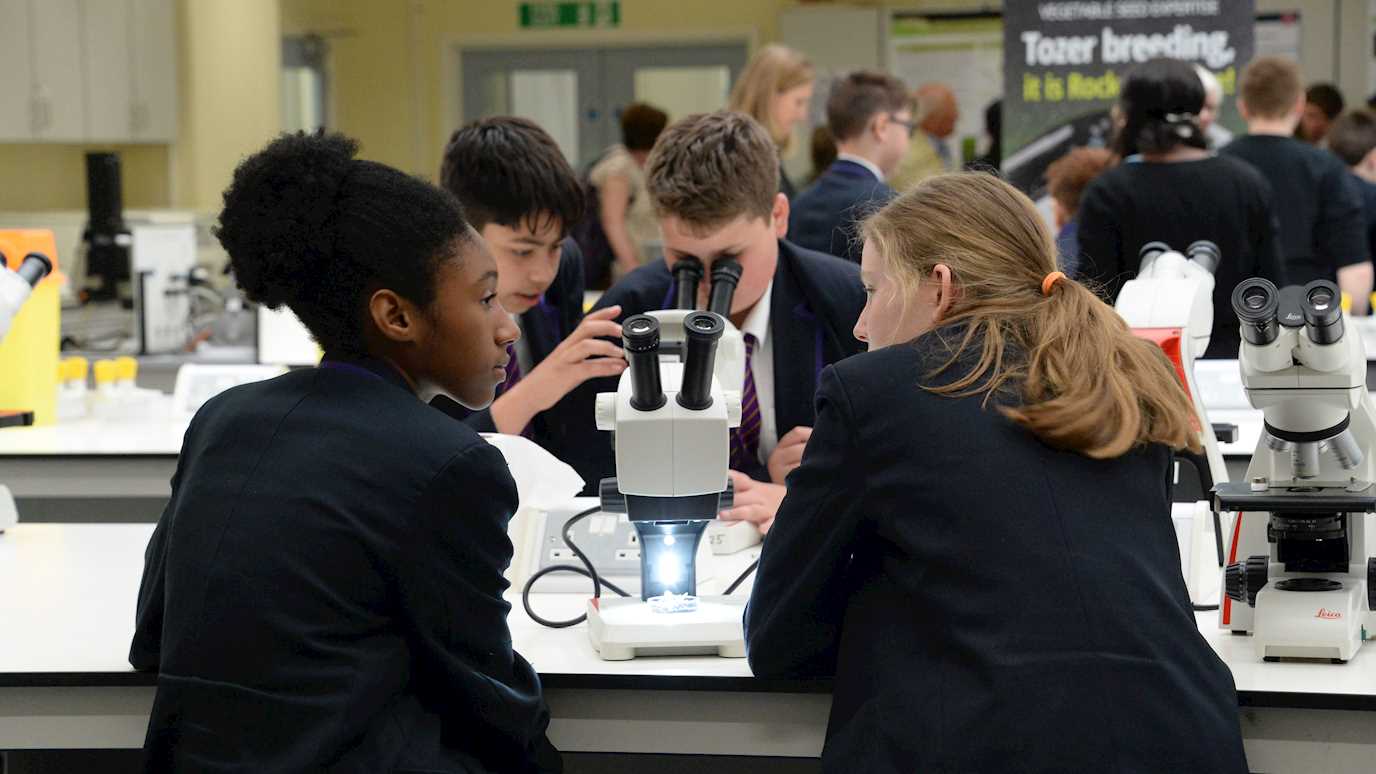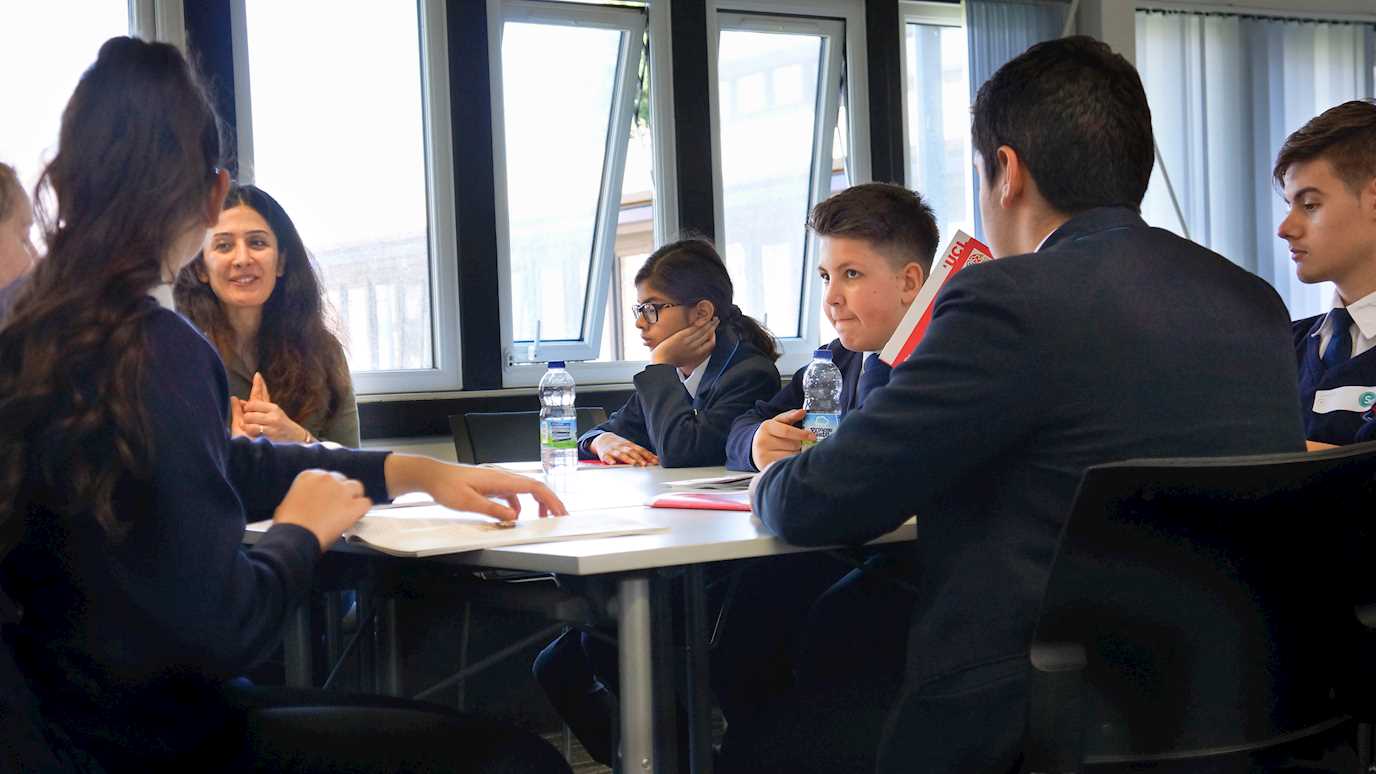Our Maths Department offers a range of activities for schools, from Taster days to a series of talks from academics to encourage students to explore and enjoy mathematics.
All our activities are available to schools subject to capacity.
Taster days
During our taster days students can experience a day of mathematics at Royal Holloway University of London. We offer talks, workshops, and a campus tour. There is the opportunity to talk to current students and staff. For more information see here.
Science for Schools lectures
We offer school-friendly public lectures presented by speakers from across our Science Departments at Royal Holloway.
Key Stage 5 students will hear our scientists and mathematicians discuss some of the hot topics in their subject. There’s the chance to ask questions afterwards and chat one-to-one with academics. For details see here
Reading
You might be wondering if there is anything useful you could be reading to prepare you for university mathematics. Here are some books that we recommend reading that are both interesting and useful.
Talks for schools
Our academics regularly volunteer to visit schools and give talks on all areas of maths. Here’s a list of prepared talks that we can offer. The talks are free and can be adjusted to fit most audiences.
Email Professor Stefanie Gerke to find out more
Professor James McKee: Mathematics at University
This talk aims to provide sixth-formers (and their teachers) with an up-to-date picture of Mathematics at University today.
Discover the way it relates to, and differs from, the subject at A-Level, the wide range of topics available (from abstract algebra to theoretical physics, from the mathematics of decision making to cryptography), the way to distinguish between mathematics degree courses at different universities, and the careers taken up by mathematics graduates.
Professor Jens Bolte: Mathematics and the Laws of Nature
At least since Galileo Galilei, the laws of nature have been formulated in mathematical language. The mathematical physicist E.P. Wigner once gave a talk on this subject, under the title "The Unreasonable Effectiveness of Mathematics in the Natural Sciences", in which he elaborates on "why the success of mathematics in its role in physics appears so baffling". In this talk I shall explain Wigner's ideas in examples, from very simple ones to some of the more "baffling" ones. Among the latter is P.A.M. Dirac's prediction of anti-matter, solely based on the mathematical consistency of the (Dirac-) equation that he had developed in 1928.
Professor Carlos Cid: Symmetry in Mathematics
In nature, the notion of symmetry is often associated with harmony of forms and beauty, and its concept is widely applied in the design of objects of all shapes and sizes, such as in arts, architecture and even music.
Most animals present some form of bilateral symmetry. Symmetry's natural habitat is however in Mathematics. The concept can be described mathematically and the ubiquity of symmetric forms in nature is a great motivation for the study of the mathematics behind symmetry.
We discuss the geometric and mathematical concept of symmetry in various forms, such as reflectional, rotational and translational symmetry. We also consider wallpaper and crystallographic symmetry. Finally, we look for examples found in both organic and inorganic nature that illustrate the beauty of symmetry.
Professor Rainer Dietmann: Prime and perfect numbers
Prime numbers are amongst the most fascinating objects in mathematics. In this talk, we want to discuss some of their basic properties such as the fact that there are infinitely more of them. We will discuss why it is important in mathematics to prove such facts rather than making a limited number of observations.
If time permits we also want to discuss an interesting special class of prime numbers - Mersenne primes. These are closely connected to so called perfect numbers, which are subject to many interesting unresolved conjectures themselves.
Professor Stefanie Gerke: Rumours, Disease and Percolation
How does fake news spread? How can one model the spread of rumours and diseases? In this talk we address these questions which will lead us to the theory of percolation. We will start by proving simple properties and will end up with open problems in the field.
Professor Brita Nucinkis: The shape of space
How big is the universe? Is it finite or infinite? Does it have a boundary? These and other questions lead us to an area of mathematics called Topology. We will explore these topics, first in dimension 2, and will then see how to extend this to higher dimensions.

























